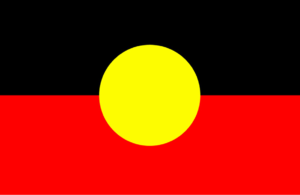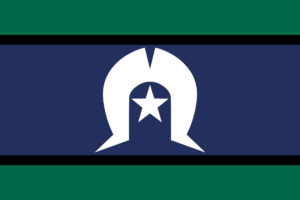by Meenakshi Richardson, Cary Waubanascum , Sara Waters & Michelle Sarche
Interested in our initiative? Submit your email to receive an invite to the alive collective.
Menu
Interested in our initiative? Submit your email to receive an invite to the alive collective.
by Meenakshi Richardson, Cary Waubanascum , Sara Waters & Michelle Sarche
On Thursday 26th June at 9:00am AEST we heard from Meenakshi Richardson, Cary Waubanascum , Sara Waters & Michelle Sarche on Reclaiming Indigenous ways for the future of Indigenous infant and early childhood mental health. Watch the talk recording here.
Indigenous lifeways, perspectives, and ways of knowing in the field of infant and early childhood mental health are underrepresented, especially given the inequitable and unjust prevalence of removal and separation of American Indian and Alaska Native (AI/AN) children from their families and communities by the child welfare system in the United States. Strengthening the infant and early childhood mental health field requires uncovering and addressing the ways in which colonization has intentionally attempted to disrupt and destroy Indigenous family relationships, especially bonds with young children, both historically and perpetuated into the present day. This presentation focused on the recent Infant Mental Health Journal (IMHJ) article which reviews the historical context of Indian child removal as a result of colonization, cultural revitalization efforts, and decolonial frameworks that inform culturally grounded intervention strategies advancing the field of infant and early childhood mental health. Decolonization is highlighted as integral for the reclamation of Indigenous caregiving practices. Community-based and Indigenous-led initiatives such as the Indian Child Welfare Act, Tribal home visiting, and breastfeeding programming are highlighted as diverse strengths-based approaches, informed by Indigenous scholarship to ensure the health and well-being of our future generations.
You can find some links below and additional articles attached that they shared during their presentation:
Tribal Early Childhood Research Center
Center for Indigenous Research Collaborations and Learning in Home Visiting
Tribal Maternal, Infant, and Early Childhood Home Visiting
Family Spirit – Tribal Home Visting Model
LEGO Spirit – At the Center for Indigenous Health (CIH) we are collaborating with international partners to share the Family Spirit program as well as the development of intergenerational playspaces, including the Batchelor Insititue in Australia
Nutaqsiivik Tribal Home Visiting Program
Minnesota Breastfeeding Coalition
Hummingbird Indigenous Family Services
ZERO to THREE – “Cross-Sector Allies Together in the Struggle for Social Justice: Diversity-Informed Tenets for Work With Infants, Children, and Families”
What we carry across borders is often heavier than what we pack in our suitcase
Read moreA statement on the state of mental health “reform” and the value of lived experience
Read moreFrom Alexandria to Australia, the same silence follows care – it just speaks a different language
Read moreAt fourteen, I became my father’s eyes. What that taught me about duty, silence, and the missing language of care.
Read moreWe want to hear from you – opportunity to attend paid lived-experience focus groups
Read moreApply now to present at the MAGNET Scientific Meeting in Adelaide on the 18th of November 2025
Read moreby Meenakshi Richardson, Cary Waubanascum , Sara Waters & Michelle Sarche
Read moreApplications are now closed
June Forum 2025 recap and new Centre Consortium logo released
Read moreFind out where we’re at and what we’ve heard so far!
Read more
Mental Health Research Grant 2024 Million Minds Mission Round $10M (AU) funding outcome
by Next Generation Researcher Network
Read moreA Call to Action to [Re]form National Mental Health and Well-Being, March 2024
The ALIVE National Centre Next Generation Researcher Network Capacity Building Funding Scheme 2025
Read moreTo address capabilities needs, career pathways, conditions in research organisations and identify lived-experience approaches and practices for research integration
Read moreFind out more about the noticeboard feature and how to contribute
Read moreA capacity building and career development initiative of the ALIVE National Centre for Mental Health Research Translation
Read moreThis is a monthly event focused on bringing people together to discuss and translate the findings in mental health research.
The ALIVE National Centre is funded by the NHMRC Special Initiative in Mental Health.
The ALIVE National Centre for Mental Health Research Translation acknowledges the Traditional Owners of the land on which we work, and pay our respects to the Elders, past and present. We are committed to working together to address the health inequities within our Aboriginal and Torres Strait Islander communities.
WARNING: Aboriginal and Torres Strait Islander viewers are warned that this site may contain images and voices of deceased persons.
This map attempts to represent the language, social or nation groups of Aboriginal Australia. It shows only the general locations of larger groupings of people which may include clans, dialects or individual languages in a group. It used published resources from the eighteenth century-1994 and is not intended to be exact, nor the boundaries fixed. It is not suitable for native title or other land claims. David R Horton (creator), © AIATSIS, 1996. No reproduction without permission. To purchase a print version visit: https://shop.aiatsis.gov.au/



The ALIVE National Centre for Mental Health Research Translation is funded by the National Health and Medical Research Council (NHMRC) Special Initiative in Mental Health GNT2002047.
ALIVE Next Generation Researcher Network Application Form Click here
For University based research higher degree students, early/mid-career mental health researchers
ALIVE Lived Experience Research Collective Application Form Click here
For University and community based lived-experience or carer-focused mental health researchers at all career stages
ALIVE Collective Application Form Click here
For any individuals or organisations with a general interest in supporting the special initiative in mental health
ALIVE Implementation and Translation Network (ITN) Application Form Click here
For sector, service delivery organisations in mental health serving people across the life course and priority populations
If you have a general enquiry about The Alive National Centre for Mental Health Research Translation, please submit an enquiry below
Not a member of the ALIVE National Centre? Register now
ALIVE Next Generation Researcher Network Application Form Click here
For University based research higher degree students, early/mid-career mental health researchers
ALIVE Lived Experience Research Collective Application Form Click here
For University and community based lived-experience or carer-focused mental health researchers at all career stages
ALIVE Collective Application Form Click here
For any individuals or organisations with a general interest in supporting the special initiative in mental health
ALIVE Implementation and Translation Network (ITN) Application Form Click here
For sector, service delivery organisations in mental health serving people across the life course and priority populations
If you have a general enquiry about The Alive National Centre for Mental Health Research Translation, please submit an enquiry below